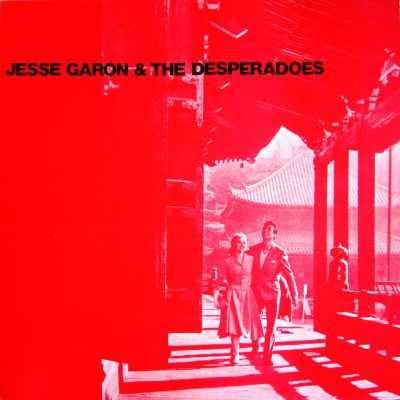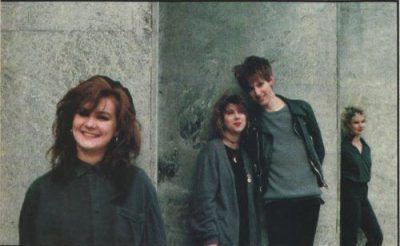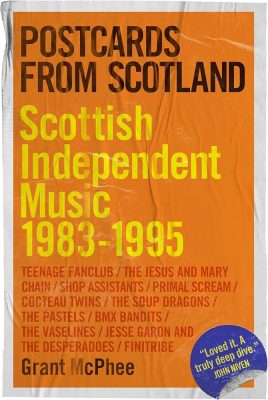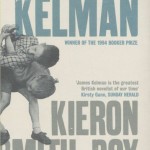Alistair Braidwood admires this thrilling, thorough take on a golden age of Scottish music
Support independent, non-corporate media.
Donate here!

I should state from the outset that if ever I was going to be well predisposed towards a book it’s one titled Postcards from Scotland: Scottish Independent Music 1983-1995.Those were my formative years and the music discussed in Grant McPhee’s exhaustive tome provided much of the soundtrack. Of course, great music doesn’t necessarily lead to significant and insightful commentary. However, if you have seen McPhee’s films Teenage Superstars and Big Gold Dream, or read Hungry Beat: The Scottish Independent Pop Underground Movement (1977-1984) (co-written with musician Douglas MacIntyre who also features in Postcards from Scotland) then you will be aware from the off that we are in safe hands.
McPhee is not only a thorough researcher and archivist, and skilled interviewer, he is also clearly a fan, and he manages to marry the necessary distance and detachment from his subject with the passion of an obsessive. It’s a difficult balancing act to pull off, but by acknowledging the inevitable grit and grumbles which are part of life in and around bands, and the music industry more generally, he successfully avoids what could have been rose-tinted hagiography.
The success of this is in no small part due to the structure, and the process itself. Grant McPhee undertook hundreds of interviews which formed the basis of his films and previous book, and it’s an approach which clearly works offering as broad a picture as possible from multiple, impeccable, sources. Rarely has the phrase ‘I know because I was there’ been so apt. When I first looked at the extensive list of contributors I feared there were going to be too many voices leading to confusion or unnecessary repetition. In the end I was left wanting more. And not only does McPhee leave you wanting more, he gives you more – Chapter 15 is called ‘1992-97’ and touches upon bands such as Thrum, a.c. acoustics, and Greenock’s Whiteout. As with Nigel Tufnel’s amp, this is a book which goes up to 11.
I mention Greenock deliberately, as place is a big part of the wider picture. This is about so much more than what was happening at each end of the M8. The more interesting stories are often found in places such as Airdrie, Bellshill (arguably Scottish Indie’s Nashville), Irvine, Perth, East Kilbride, Grangemouth, and so on. As well as the lesser-known characters of the Scottish music scene, there are also the unsung venues which include the aforementioned Greenock’s Rico’s, The Riverside Inn in Bridgend, The Bay Hotel in Gourock, and Norman Blake’s grandmother’s house.
There are numerous nuggets of information which some would call inconsequential, but it is catnip to many music fans. The truth is often found in the trivia. Just a few of my favourites include that Sophie Pragnell (from Sister John and The Starry Skies, among others) played viola on The Vaselines’ legendary ‘Jesus Doesn’t Want Me For A Sunbeam’, that two of my favourite writers, Andrew O’Hagan and John Niven, played in the same band, Irvine’s The Big Gun, and that Steve Mason really hates The Exploited. And if I ever knew that Chris Connelly from Finitribe is the same one who played with Ministry, the passing of time and everything that goes with it had stripped that information from me.

What might surprise the more casual reader is the range of music and musicians represented. It’s not all fringes, anoraks, jangling guitars, and kazoos. From the grungey garage stylings of The Green Telescope to the experimental electronica of Ege Bam Yasi, an eclectic range of bands and musicians found a home with Scottish independents. This musical variety also applies to individual bands as they developed and, heaven forfend, aged. As they themselves acknowledge, The Teenage Fanclub who made debut album A Catholic Education are a very different band in terms of the music and songs from the one who released Grand Prix in 1995, although the shared DNA remains.
Postcards From Scotland is not just an overview of Scottish Independent music over the these years. The bands and musicians discussed are key to Scottish culture more generally in all sorts of ways. I’ve already mentioned Andrew O’Hagan and John Niven, but there are other writers, artists, filmmakers, comic book writers, illustrators, actors, all of whom did their time in bands. Then there were those who started their own record labels, opened shops, or who published, and wrote for, newspapers and magazines. As with punk itself, Scotland’s post-punk scene was a fertile breeding ground for artists of all types.

There’s a juxtaposition which runs throughout the book, and is an eternal dilemma for people who make art. Fame and fortune versus cool and cult. In Stewart Lee’s excellent documentary King Rocker – A film about Robert Lloyd & The Nightingales, Frank Skinner says, “I think everybody who has mainstream success wishes they were a cult hero, and every cult hero wishes they had mainstream success.” There will be those who feature in Postcards From Scotland who would vehemently deny that, and some do – Andrew O’Hagan states about The Big Gun “We only really cared what our mates thought” – but I do wonder if there is some truth in Skinner’s statement, and that tension comes through at times in these interviews. I also think it’s telling that the dates here are 1983-1995 as it could be argued they are UK indie music’s ‘golden years’. That independent, or alternative, aesthetic and attitude was largely lost when major labels acquired many of the smaller labels, and the term ‘indie’ lost much of its original meaning. It could be said, in terms of this book, that Whiteout supporting Oasis was the symbolic end of indie music’s salad days.
If you were to create a word cloud relating to Scottish music, ‘Postcard’ would be among the most prominent, the influence still felt today – the recent EP from Ayr indie band Mannequin Mannequin is called ‘Postcard Scenes’, one of the best new music radio shows around is Postcards From The Underground on Cumbernauld FM, and The Postcards are one of the countries best cover bands (no prizes for guessing what they play) – but what Postcards From Scotland makes clear is that there was, and is, so much more going on than simply the bands and musicians who orbited around Postcard Records. And, as Grant McPhee acknowledges, Scottish indie music continued, and continues, to thrive, including many of the people found on these pages who still make and release exceptional and significant music. But that does make me wonder if this is the end of the story for the author. Is there a similar investigation to be had into labels such as Chemikal Underground, Gerry Loves, Creeping Bent, Lost Map, Olive Grove, LNFG, and beyond, and the bands around them? Or perhaps these stories are for someone else to tell.
Some will know some of this story, they may even know most of it, but I’m willing to bet very few know it all. Most music biographies concentrate on the bands and names the wider public will have heard of. What Grant McPhee has done is to go deep and wide and tall to fill in all the silences, meaning that for every Primal Scream, Jesus and Mary Chain, Cocteau Twins, and Soup Dragons there are Meat Whiplash, The Hardy Boys, The Fizzbombs, The Wendys, The Styng Rites, and countless others, all with their own fascinating stories to tell. That’s part of the joy – thinking about bands, gigs, nights out, and those who shared them, perhaps for the first time in years. For me, and those like me, this is as close to an essential read as I can imagine. But it will also interest anyone involved with making music today as these are tales to identify and empathise with, or even from which to take heed. Some may consider Postcards from Scotland a historical document, but it is so much more. This was a time, and this was music, which still has resonance and relevance today, in ways which I can only hint at in this review.
Postcards from Scotland: Scottish Independent Music 1983-1995 is published by Omnibus Press.










